Pop Canvas Prints,Sexy Prints,Stretched Canvas Prints Visual Beauty Import & Export Co., Ltd. , http://www.fj-oilpainting.com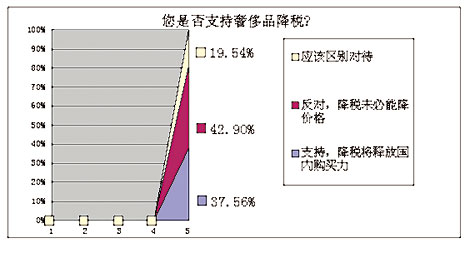
According to statistics, nearly 60% of netizens support tax reductions for luxury goods. They believe that the tax reduction of luxury goods can release domestic purchasing power, and at the same time it must be opened up and treated differently. For example, taxation can be considered first on the price. Because it is obvious that with the development of the economy, some middle-to-high end consumer goods can no longer be defined as luxury goods, and the corresponding import tax rate should be re-adjusted with the times. 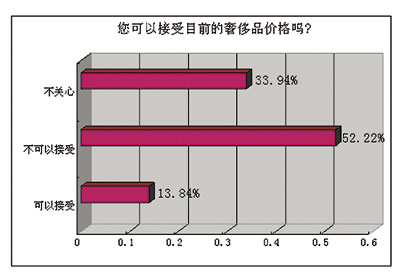
Only 13.84% of respondents can accept the current luxury prices in the market, which to some extent indicate that relative to medium-to-high-end consumption, luxury consumption is indeed far away from ordinary consumers. 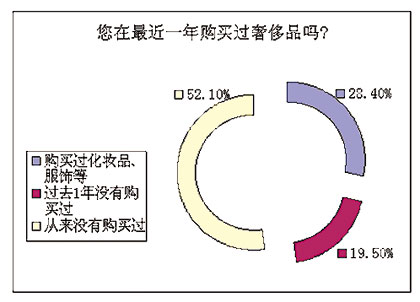
Most of the netizens who purchase luxury goods are buying cosmetics and high-end clothing related to daily life. The consumption of top-level watches, jewelry, and leather goods is still a minority. This also reminds the authorities that the top brands, jewellery and leather goods can be taxed without conditions, but it is important that cosmetics, middle-end and high-end clothing related to daily life should be reduced in taxation.
Recently, the debate on the reduction of tariffs on luxury goods has continued. Officials have also made it clear that China will further lower import tariffs, including tariffs on some high-end goods. Prior to this, whether luxury goods were heavily taxed was also a problem that the industry focused on. Some people think that a substantial reduction in tariffs on luxury goods can stimulate domestic consumption, stimulate GDP growth, and benefit the country and the people. Some people think that the luxury tax should be levied normally, and consumption of luxury goods should not be deterred or encouraged, allowing them to develop freely. 
From this chart, it can be shown that netizens are no longer blind to the purchase of luxury goods, and they value the culture behind the brand. 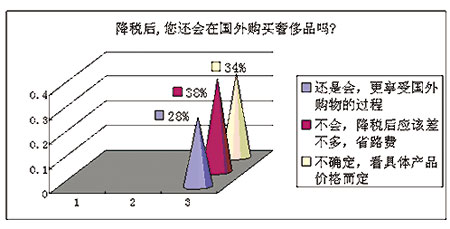
The chart shows that whether luxury goods tariffs go up or down does not have much impact on those who like to enjoy the shopping process abroad, because they will not be too concerned about a 10% or 30% reduction in domestic prices. Even if it is almost the same as the country of origin, there are still 34% of netizens will choose to purchase in the origin, such a crowd is not a minority. 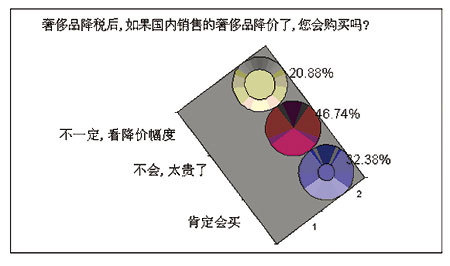
The chart shows that 32.38% of netizens will consider buying after the price reduction of luxury goods. There is still 20.88% of netizens adopting a wait-and-see attitude. It will take some time before the conclusion can be drawn whether lowering tariffs will allow consumers to return and expand domestic demand.
Is the reduction of luxury goods consumption consistent with public opinion? Speak with data!
Recently, the debate on the reduction of tariffs on luxury goods has continued. Officials have also made it clear that China will further lower import tariffs, including tariffs on some high-end goods. Prior to this, whether luxury goods were heavily taxed was also a problem that the industry focused on. Some people think that a substantial reduction in tariffs on luxury goods can stimulate domestic consumption, stimulate GDP growth, and benefit the country and the people. Some people think that the luxury tax should be levied normally, and consumption of luxury goods should not be deterred or encouraged, allowing them to develop freely. According to the reporter's survey on “whether the tax reduction of luxury goods is in line with public opinionâ€, the survey results of 226 netizens were widely collected on the questionnaire and the first survey website. Some of them supported the reduction of tariffs and encouraged the consumption of domestic luxury goods. Some of them also hold a wait-and-see attitude, and decide whether or not to implement luxury consumption in the country. This result to some extent represents the voice of the people.